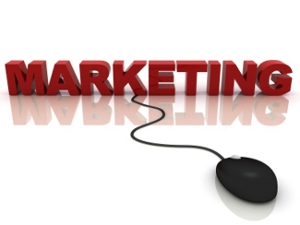Generate business from your e-marketing plan
Introduction
The overall objective of any marketing initiative is to help sell your goods or services. Used successfully, e-marketing can enhance customer relationships and increase your business’ profitability.
Your e-marketing plan needs to consider which techniques to adopt in order to attract potential customers to your e-commerce website and keep them coming back.
There are a variety of different approaches that you can take, and your e-marketing plan will usually include a mix of different tactics that are best suited to help you meet your overall objectives.
This guide provides an introduction to the e-marketing techniques most commonly used by small businesses.
Email marketing
Marketing your products or services by email can be a fast, flexible and cost-effective way of reaching new customers and retaining existing customers. Email marketing allows you to create more targeted and personalised messages – helping you to build more meaningful relationships with your customers while improving response rates to your direct marketing campaigns. However, it is important not to overuse email marketing, since what makes it so effective – timely, personal messages – can irritate people if it is irrelevant or unwanted.
When creating email campaigns technical considerations include cross-platform compatibility – since different platforms and programs will display email differently. You should be careful in your use of images since these will increase download times and may be blocked by email filters. Create plain text versions as well as HTML versions to help improve deliverability and always provide a link in your email to a web version – so that recipients can view it in a web browser rather than an email client. See our guide on email marketing.
It is important to profile your customers and understand what the best format is for them. For example some customers may prefer to receive plain text emails rather than HTML, as they will want to read their emails on a mobile device. While it is best practice to provide a quick and easy registration process for email marketing, consider what information you want to gather in the first instance – with a view of building up your customers profile over time.
Email marketing rules
The Privacy and Electronic Communications Regulations cover marketing emails to individuals. You must use an opt-in consent procedure for commercial emails – which means you can only target people who have agreed to be contacted. The exception is the ‘soft opt-in’ which applies when:
- you have obtained an individual’s email address and details during a sale or during negotiations for a sale of a product or service to them
- your messages are only marketing your similar products or services
- you have given the individual opportunities to refuse marketing messages when their details are collected and with every future message, and they do not opt out
See the page overview of email marketing under privacy laws in our guide on email marketing.
Advantages of email marketing
-
Flexible – you can send plain text, graphics or attach files – whichever suits your message best.
-
Easy for people to forward, building your reputation by word of mouth or viral marketing.
-
People can click on links and follow your call to action immediately.
-
Easy to attribute value to a campaign by using web analytics software.
-
Less intrusive than telephone marketing.
-
Inexpensive and eco-friendly compared to postal direct marketing.
Potential problems with email marketing
-
Files need to be small enough to download quickly.
-
Unsolicited commercial email or ‘spam’ irritates consumers. You need to make sure that your email marketing complies with privacy and data protection rules, and that it is properly targeted at people who want to receive it. The ‘click through rate’ for untargeted or cold emails is likely to be very low.
-
Poorly designed emails may not get delivered. Emails that use certain spam keywords in the subject heading or content of the email are likely to be filtered out by email software and internet service providers.
Read more: nibusinessinfo.co.uk




